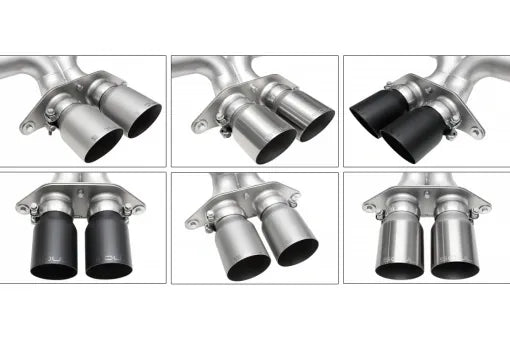



ECU tuning is the process of adjusting the engine control unit's software to enhance vehicle performance, efficiency, or fuel economy.
It can, depending on the manufacturer. Many warranties do not cover modifications like ECU tuning.
Use the highest octane fuel recommended for your specific tune to ensure optimal performance and safety.
Yes, a properly tuned car can be used daily, as long as the tune is tailored for reliable, everyday driving.
CPC (Central Powertrain Controller) and TCU (Transmission Control Unit) manage your vehicle's powertrain and transmission systems, respectively.
Map switching allows you to change between different tuning settings (maps) for varying driving conditions without having to retune the ECU.
Yes, if done by a professional using proper tools, ECU tuning is generally safe for your vehicle.
ECU tuning works by modifying the software that controls engine parameters like fuel mixture, ignition timing, and boost pressure to optimize performance.
The process of installing a tune depends on the vehicle’s make and model. Some tunes are installed by connecting a tuning device to your car’s OBD-II port and uploading the tuned software, others may require ECU unlock.
Stage 1 is for vehicles with no modifications, stage 2 is for vehicles with bolt-on upgrades or downpipes installed.
We offer post-installation support, troubleshooting, and guidance on using your tuning software and hardware.
Choose tuning software that is compatible with your vehicle, has good reviews, and suits your performance goals (e.g., reliability vs. max power).





